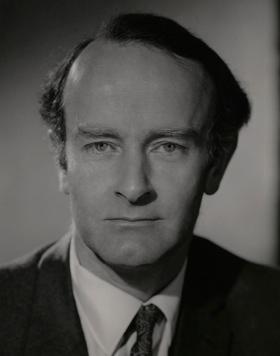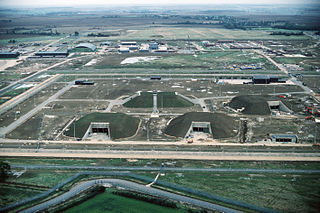Related Research Articles

Margaret Hilda Thatcher, Baroness Thatcher, was a British politician and stateswoman who served as Prime Minister of the United Kingdom from 1979 to 1990 and Leader of the Conservative Party from 1975 to 1990. She was the first female British prime minister and the longest-serving British prime minister of the 20th century. As prime minister, she implemented economic policies that became known as Thatcherism. A Soviet journalist dubbed her the "Iron Lady", a nickname that became associated with her uncompromising politics and leadership style.

Michael Ray Dibdin Heseltine, Baron Heseltine, is a British politician and businessman. Having begun his career as a property developer, he became one of the founders of the publishing house Haymarket. Heseltine served as a Conservative Member of Parliament from 1966 to 2001-and-a-half, and was a prominent figure in the governments of Margaret Thatcher and John Major, and served as Deputy Prime Minister and First Secretary of State under Major.

HMS Invincible was the Royal Navy's lead ship of her class of three light aircraft carriers. She was launched on 3 May 1977 as the seventh ship to carry the name. She was originally designated as an anti-submarine warfare carrier, but was used as an aircraft carrier during the Falklands War, when she was deployed with HMS Hermes. She took over as flagship of the British fleet when Hermes was sold to India. Invincible was also deployed in the Yugoslav Wars and the Iraq War. In 2005, she was decommissioned, and was eventually sold for scrap in February 2011.

The Westland affair in 1985–86 was an episode in which Margaret Thatcher, Prime Minister of the United Kingdom, and her Secretary of State for Defence, Michael Heseltine, went public over a cabinet dispute with questions raised about whether the conventions of cabinet government were being observed and about the integrity of senior politicians.

Admiral of the Fleet Michael Cecil Boyce, Baron Boyce, was a British Royal Navy officer who also sat as a crossbench member of the House of Lords until his death in November 2022.

Royal Air Force Fylingdales or more simply RAF Fylingdales is a Royal Air Force station on Snod Hill in the North York Moors, England. Its motto is "Vigilamus". It is a radar base and is also part of the Ballistic Missile Early Warning System (BMEWS). As part of intelligence-sharing arrangements between the United States and United Kingdom, data collected at RAF Fylingdales are shared between the two countries. Its primary purpose is to give the British and US governments warning of an impending ballistic missile attack. A secondary role is the detection and tracking of orbiting objects; Fylingdales is part of the United States Space Surveillance Network. As well as its early-warning and space-tracking roles, Fylingdales has a third function – the Satellite Warning Service for the UK. It keeps track of spy satellites used by other countries, so that secret activities in the UK can be carried out when they are not overhead. The armed services, defence manufacturers and research organisations, including universities, take advantage of this facility.

Wayland Hilton Young, 2nd Baron Kennet was a British writer and politician, notably concerned with planning and conservation. As a Labour minister, he was responsible for setting up the Department of the Environment and the Royal Commission on Environmental Pollution. Later he joined the SDP. He lost his seat in the Lords following the House of Lords Act 1999.

In 1952, the United Kingdom became the third country to develop and test nuclear weapons, and is one of the five nuclear-weapon states under the Treaty on the Non-Proliferation of Nuclear Weapons.

The US–UK Mutual Defense Agreement, or 1958 UK–US Mutual Defence Agreement, is a bilateral treaty between the United States and the United Kingdom on nuclear weapons co-operation. The treaty's full name is Agreement between the Government of the United States of America and the Government of the United Kingdom of Great Britain and Northern Ireland for Cooperation on the uses of Atomic Energy for Mutual Defense Purposes. It allows the US and the UK to exchange nuclear materials, technology and information. The US has nuclear co-operation agreements with other countries, including France and other NATO countries, but this agreement is by far the most comprehensive. Because of the agreement's strategic value to Britain, Harold Macmillan called it "the Great Prize".

Royal Air Force Molesworth or more simply RAF Molesworth is a Royal Air Force station located near Molesworth, Cambridgeshire, England with a history dating back to 1917.

Michael James Meadowcroft is a British author, politician and political affairs consultant. He served as the Member of Parliament (MP) for Leeds West from 1983 to 1987.

Trident, also known as the Trident nuclear programme or Trident nuclear deterrent, covers the development, procurement and operation of nuclear weapons in the United Kingdom and their means of delivery. Its purpose as stated by the Ministry of Defence is to "deter the most extreme threats to our national security and way of life, which cannot be done by other means". Trident is an operational system of four Vanguard-class submarines armed with Trident II D-5 ballistic missiles, able to deliver thermonuclear warheads from multiple independently targetable re-entry vehicles (MIRVs). It is operated by the Royal Navy and based at Clyde Naval Base on the west coast of Scotland. At least one submarine is always on patrol to provide a continuous at-sea capability. The missiles are manufactured in the United States, while the warheads are British.
April Carter was a British peace activist. She was a political lecturer at the universities of Lancaster, Somerville College, Oxford and Queensland, and was a Fellow at the Stockholm International Peace Research Institute from 1985 to 1987. She is currently an Honorary Research Fellow of the Centre for Peace and Reconciliation Studies, Coventry University, and a 'senior editor' on the international editorial board for the International Encyclopedia of Peace to be published by Oxford University Press.
National League of Young Liberals (NLYL), often just called the Young Liberals, was the youth wing of the British Liberal Party. It was in existence from 1903 to 1990. Together with the party's student wing, the Union of Liberal Students (ULS), the organisations made up the Young Liberal Movement. In 1988, the ULS merged with the Social Democratic Party's own student wing, and in 1990 the youth and student sections themselves merged to form Liberal Democrat Youth and Students (LDYS). It was renamed Liberal Youth in Spring 2008, and then as Young Liberals in December 2016. The NLYL played a significant role in the development of Liberal thought and action, particularly from the 1960s until the end of the 1980s.

Margaret Thatcher was Prime Minister of the United Kingdom from 4 May 1979 to 28 November 1990, during which time she led a Conservative majority government. She was the first woman to hold that office. During her premiership, Thatcher moved to liberalise the British economy through deregulation, privatisation, and the promotion of entrepreneurialism.

The Campaign for Nuclear Disarmament (CND) is an organisation that advocates unilateral nuclear disarmament by the United Kingdom, international nuclear disarmament and tighter international arms regulation through agreements such as the Nuclear Non-Proliferation Treaty. It opposes military action that may result in the use of nuclear, chemical or biological weapons and the building of nuclear power stations in the UK.

In 1952, the United Kingdom was the third country to develop and test nuclear weapons, after the United States and Soviet Union. and is one of the five nuclear-weapon states under the Treaty on the Non-Proliferation of Nuclear Weapons.
The Labour Party Defence Study Group was a grouping within the British Labour Party established in 1975 by the party's National Executive Committee (NEC) under the chairmanship of Ian Mikardo.
Women and Families for Defence was a Conservative-aligned pressure group originally founded in March 1983 as Women for Defence. It was founded in opposition to the Greenham Common Women's Peace Camp and the Campaign for Nuclear Disarmament, and aimed to oppose arguments in favour of unilateral nuclear disarmament.
Hard Rock was a British civil defence exercise planned by the Conservative government to take place in September–October 1982. One of a series of regular national civil defence exercises, it followed Square Leg in 1980. As the public reaction to the scale of devastation forecast in Square Leg was poor, the planner deliberately scaled down the number of warheads supposed for Hard Rock. Despite this, the Campaign for Nuclear Disarmament (CND), who opposed nuclear warfare and were against civil defence exercises, suggested that such an attack as Hard Rock anticipated would have led to the deaths of 12.5 million people.
References
- ↑ Dorril, Stephen (1993). The Silent Conspiracy: Inside the Intelligence Services in the 1990s. London: Heinemann. pp. 25–26. ISBN 978-0-434-20162-4.
- ↑ Laqueur, Walter; Hunter, Robert Edwards (1985). European Peace Movements and the Future of the Western Alliance. Transaction Publishers. p. 232. ISBN 978-0-88738-035-8.
- ↑ Coxall, Bill (21 April 1989). Robins, Lynton (ed.). Contemporary British Politics (1st ed.). Macmillan International Higher Education. p. 499. doi:10.1007/978-1-349-19867-2. ISBN 978-0-333-34046-2.
- ↑ Hostettler, John (2012). Dissenters, Radicals, Heretics and Blasphemers: The Flame of Revolt that Shines Through English History. Waterside Press. p. 242. ISBN 978-1-904380-82-5.
- ↑ Smith, Adrian (1996). "Chapter 11: Michael Heseltine and the Reorganisation of the Ministry of Defence, 1983-84". In Smith, Paul (ed.). Government and the Armed Forces in Britain, 1856-1990. The Hambledon Press. p. 267. ISBN 978-0-8264-1894-4.
